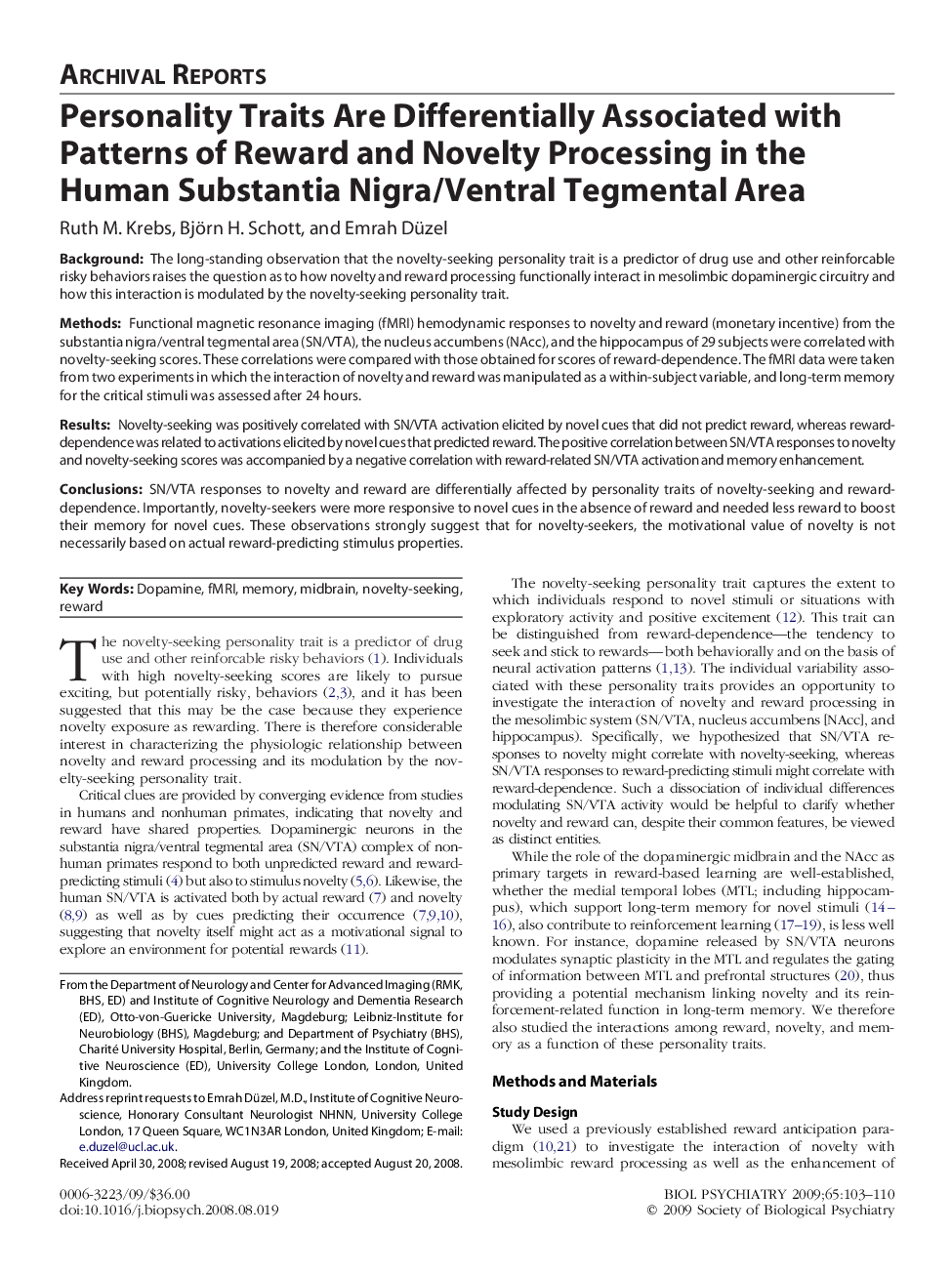| کد مقاله | کد نشریه | سال انتشار | مقاله انگلیسی | نسخه تمام متن |
|---|---|---|---|---|
| 4180460 | 1276605 | 2009 | 8 صفحه PDF | دانلود رایگان |

BackgroundThe long-standing observation that the novelty-seeking personality trait is a predictor of drug use and other reinforcable risky behaviors raises the question as to how novelty and reward processing functionally interact in mesolimbic dopaminergic circuitry and how this interaction is modulated by the novelty-seeking personality trait.MethodsFunctional magnetic resonance imaging (fMRI) hemodynamic responses to novelty and reward (monetary incentive) from the substantia nigra/ventral tegmental area (SN/VTA), the nucleus accumbens (NAcc), and the hippocampus of 29 subjects were correlated with novelty-seeking scores. These correlations were compared with those obtained for scores of reward-dependence. The fMRI data were taken from two experiments in which the interaction of novelty and reward was manipulated as a within-subject variable, and long-term memory for the critical stimuli was assessed after 24 hours.ResultsNovelty-seeking was positively correlated with SN/VTA activation elicited by novel cues that did not predict reward, whereas reward-dependence was related to activations elicited by novel cues that predicted reward. The positive correlation between SN/VTA responses to novelty and novelty-seeking scores was accompanied by a negative correlation with reward-related SN/VTA activation and memory enhancement.ConclusionsSN/VTA responses to novelty and reward are differentially affected by personality traits of novelty-seeking and reward-dependence. Importantly, novelty-seekers were more responsive to novel cues in the absence of reward and needed less reward to boost their memory for novel cues. These observations strongly suggest that for novelty-seekers, the motivational value of novelty is not necessarily based on actual reward-predicting stimulus properties.
Journal: Biological Psychiatry - Volume 65, Issue 2, 15 January 2009, Pages 103–110